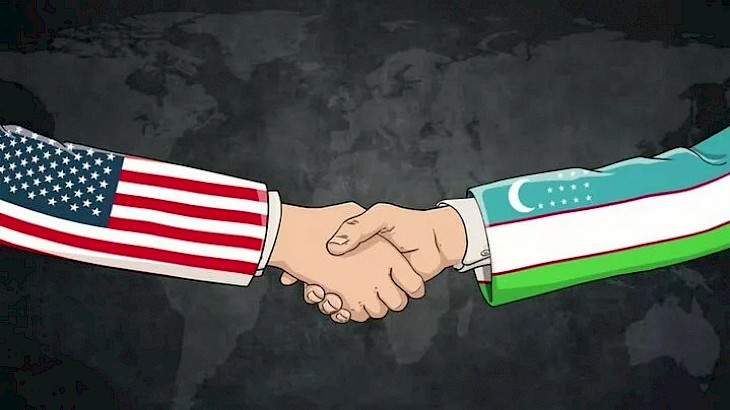According to reports, U.S. political circles are discussing a revision of the White House's policy in Central Asia amidst the global geopolitical crisis. In this context, Washington is focusing on the largest country in the region—Uzbekistan, reports uz24.uz.
Accelerating WTO Membership
Bilateral trade between Uzbekistan and the U.S. increased from $355 million in 2018 to $650 million in 2023. However, this figure is significantly lower compared to trade with China ($14 billion) and Russia ($10 billion). Against this backdrop, the U.S. may seek to accelerate Uzbekistan's accession to the World Trade Organization (WTO) to expand political, trade-economic, and socio-humanitarian ties. U.S. institutions such as the International Development Finance Corporation, the Export-Import Bank of the U.S., and the U.S. Trade and Development Agency could play a significant role in this nearly 30-year process. Washington’s political circles believe that now is the most favorable moment to strengthen U.S. influence in the region.
Restoring Trust and Creating New Economic Opportunities
The U.S. government may also lift the Jackson-Vanik amendment, which still applies to Uzbekistan. Although its repeal would not significantly impact bilateral trade, it would serve as a symbolic recognition of Uzbekistan's sovereignty and independence. Capitol Hill believes that lifting the amendment could help restore trust and open new economic opportunities.
Reintroduction of the GSP Program
The possibility of renewing the Generalized System of Preferences (GSP) program is not excluded. This initiative once granted developing countries like Uzbekistan duty-free access to the U.S. market. The suspension and non-renewal of the program created a false impression of Washington's reduced interest in countries such as Uzbekistan. Meanwhile, China and Russia are interested in strengthening ties with the region, and the U.S. seeks to prevent Beijing and Moscow from gaining influence.
Transport Corridors
Being a double landlocked country, Uzbekistan is looking for new ways to reduce dependence on Russia. The Middle Corridor, which runs through Kazakhstan, Azerbaijan, and Turkey, serves as a means of enhancing independence. The U.S. is already considering supporting these corridors. Developing Uzbekistan’s logistics systems aligns with Washington's interests, as the country holds significant mineral resources.
Signing a Bilateral Investment Agreement
This agreement could eventually serve as a foundation for establishing a free trade regime. It is worth noting that the development of this agreement was halted for political reasons (the Andijan events and the closure of the military base in Karshi). Experts believe that a new phase of bilateral engagement will begin after the presidential elections. Regardless of who occupies the White House, all the aforementioned steps are likely to be implemented gradually.
CentralasianLIGHT.org
October 16, 2024

